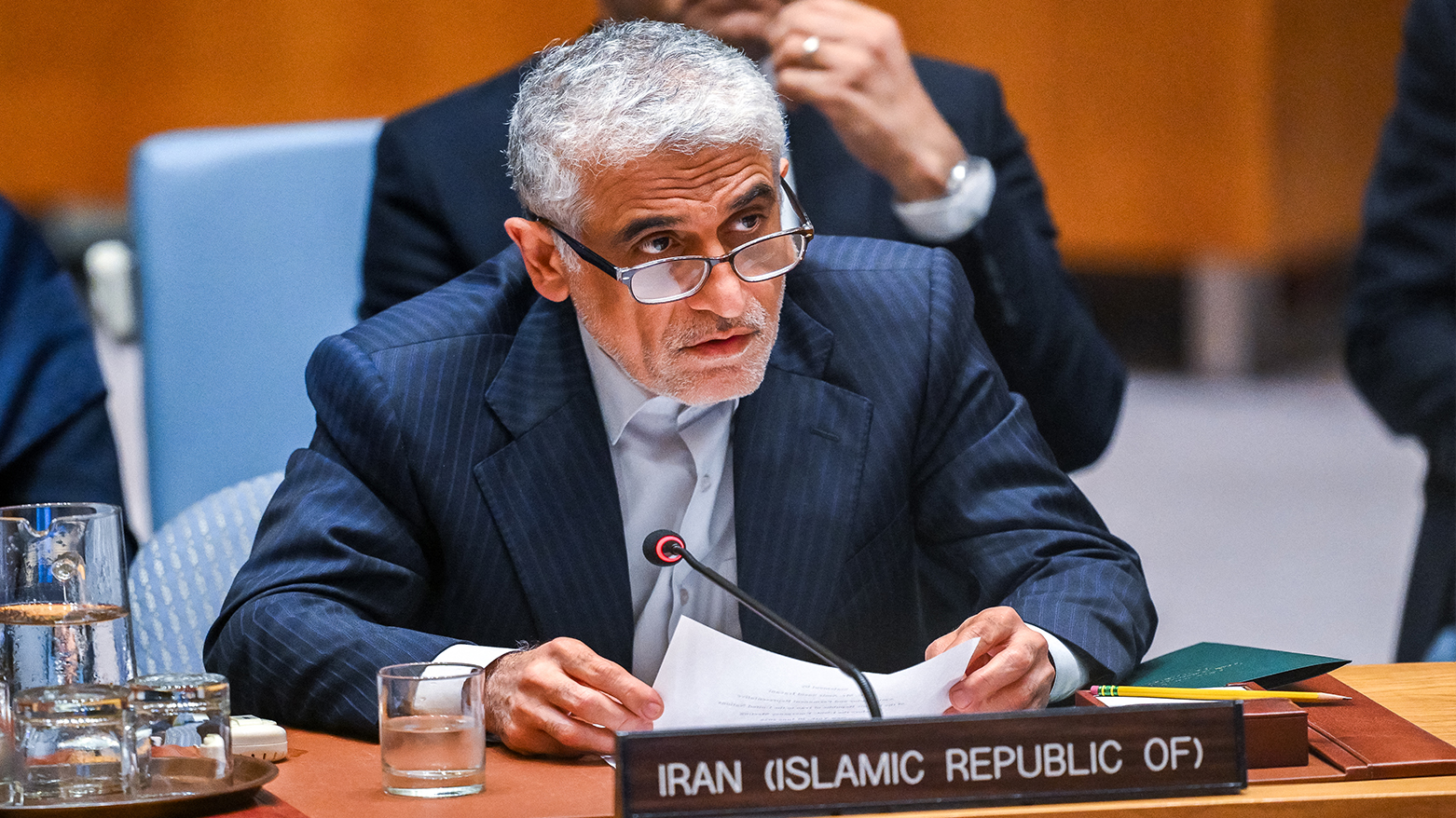Iran Dismisses Threats Against UN Nuclear Watchdog as International Tensions Escalate
Iran denies threats against IAEA's Grossi despite hardliner calls for execution. UN envoy insists inspectors are safe, but Tehran maintains suspension of nuclear cooperation. US & Germany condemn rhetoric as tensions rise over Iran's uranium enrichment and lack of transparency.

By Ahora Qadi
ERBIL (Kurdistan24) – Iran has denied any threats against Rafael Grossi, the director general of the International Atomic Energy Agency (IAEA), or the agency’s inspectors, following provocative calls in Iranian media urging his execution and escalating scrutiny over Tehran’s stance on nuclear transparency.
In an interview with CBS on Sunday, Iran’s ambassador to the United Nations, Amir-Saeid Iravani, said the inspectors working in Iran remained “in safe conditions,” and rejected suggestions of official hostility toward Grossi. “There is not any threat,” he stated when questioned about incendiary statements published by an ultra-conservative Iranian newspaper, which labelled Grossi a “spy” and called for his execution.
The remarks come at a time of heightened diplomatic strain, after the Iranian parliament voted to suspend cooperation with the UN nuclear watchdog, in response to what Tehran considers biased and hostile actions by the agency. The IAEA had earlier adopted a resolution on June 12, accusing Iran of violating its nuclear obligations—an act Iranian officials claim served as a pretext for Israel’s airstrikes on Iranian nuclear facilities the following day.
Grossi Accused of Facilitating Attacks
Senior Iranian figures have publicly condemned Grossi’s silence on the strikes. On June 28, Ali Larijani, a key adviser to Iran’s Supreme Leader Ayatollah Ali Khamenei, alleged during a funeral procession for fallen Iranian commanders and nuclear scientists that Grossi was complicit in enabling the Israeli attack by remaining silent and pressing for inspections.
Iranian Foreign Minister Abbas Araghchi had earlier echoed similar sentiments, describing Grossi’s demand to access the bombed nuclear sites as “meaningless and possibly even malign in intent.” He insisted that Grossi had betrayed his duties as head of the IAEA and accused him of contributing to a narrative that enabled military escalation.
Iran Reiterates Uranium Enrichment Policy and Dialogue Conditions
Ambassador Iravani further emphasized Tehran’s longstanding position on uranium enrichment, asserting that the Islamic Republic has never suspended its enrichment activities under any circumstances. He reiterated Iran’s willingness to return to diplomatic engagement with the United States, but cautioned that “the current conditions are not suitable for negotiations.” He warned that talks would only resume if Washington refrained from imposing conditions on Tehran.
United States Condemns Calls for Execution
The United States responded sharply to the situation, with Secretary of State Marco Rubio issuing a strong rebuke on Sunday. In a statement on his official X account, Rubio wrote: “Calls in Iran for the arrest and execution of IAEA Director General Grossi are unacceptable and should be condemned.”
Rubio emphasized the importance of the IAEA’s work, stating, “We support the IAEA’s critical verification and monitoring efforts in Iran and commend the Director General and the IAEA for their dedication and professionalism.” He further urged Tehran to honor its international commitments by guaranteeing the safety and security of IAEA personnel working inside the country.
International Reactions and German Appeal
Germany responded strongly to the inflammatory rhetoric emerging from Tehran. On Sunday, German Foreign Minister Johann Wadephul took to social media platform X, urging Iranian officials to “stop threats” against IAEA personnel. “Threats against them from within Iran are deeply troubling and must stop,” Wadephul wrote, expressing unwavering support for Grossi and his team’s professionalism.
He further called on Iranian authorities to “fully cooperate with the IAEA and to ensure the safety of its personnel.” Earlier, the German minister had warned that the parliamentary vote to end collaboration with the agency was “a totally wrong signal” and undermined international confidence in Iran’s nuclear intentions.
Growing Concerns over Nuclear Oversight
Since the suspension of inspections following the June 13 Israeli strikes, the IAEA has not been granted access to Iran’s nuclear sites, prompting concerns among Western states and the agency itself about Iran’s level of compliance. Grossi’s request to inspect the damaged sites was rejected by Tehran, heightening the friction between the agency and the Iranian government.
While Iranian officials continue to assert that their nuclear program is for peaceful purposes, the rising antagonism toward the UN watchdog and suspension of cooperation have cast fresh doubts on Iran’s transparency, fueling international calls for renewed oversight and restraint.
